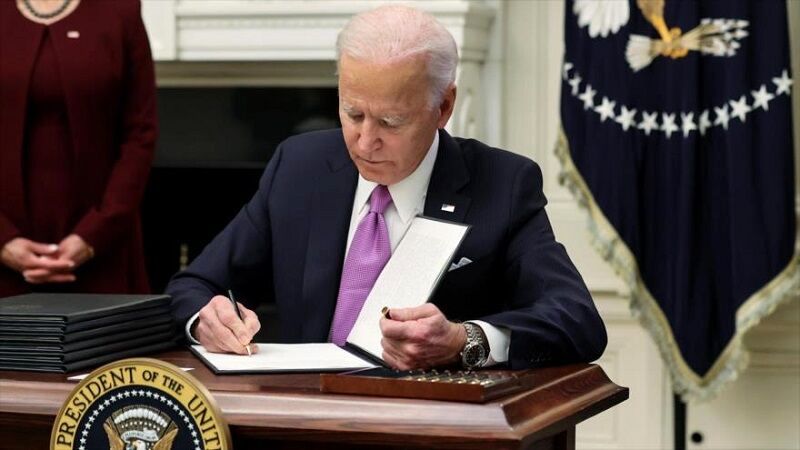Allocation of 10 billion dollars in aid to Taiwan and 6 billion dollars to contain Russia in Europe, 600 million dollars of which includes aid to Ukraine, are among the “controversial” parts of the 2023 military budget, which have given it an anti-Chinese and anti-Russian nature. This is in addition to the separate figures allocated in the 2023 military budget to exclude Russia from some international organizations.
Allocation of 858 billion dollars in military budget for just one year shows the growing trend of “militarism” in the US foreign policy, which was formed due to the increasing influence of the “military collection” in it.
This issue, focusing on the approved military spending for 2023, will not only have “significant consequences” in the domestic arena of the United States, but will also create “new challenges” at the international level.
Internal consequences; increase in military spending of the United States in a situation under which the economic indicators and public welfare in that country are decreasing day by day and inflation and costs of living are increasing, will be definitely “troublesome” for the administration and the House of Representatives and the Senate in terms of public opinion.
The US administration has increased the military expenses while the inflation rate of that country has quadrupled compared to the last decade. This year, the inflation rate broke the 40-year record for the first time, and according to official statistics, exceeded 8.5 percent.
At the same time, the prices of energy carriers and fuel consumed by the people have also increased in recent months and the cost of living has increased to the extent that according to a new survey by “Qualtrics Institute”, more than half of the American wage earners are looking for a second job or more to cover their expenses.
Domestic critics, including Biden’s fellow party members, regarding the unprecedented increase in US military spending, believe that in an era of inflation, the Biden administration and most members of the Congress think that the Pentagon should receive more money and the people should receive less money, even in a situation under which the Biden administration to date, has not proposed any legislation to help people during a confusing cost-of-living crisis.
International consequences; increase in military spending of the United States, from one point of view, means the strengthening of the “crisis-making administration” and “biological crisis” in the US, the signs of which can be seen in the country’s regional and international policies.
Abusing various crises in the four corners of the world is the main characteristic of such a government; a government that seeks to intensify the mechanisms of “militarization” in various regions of the world, especially East Asia, Russia’s surrounding area, and West Asia, with an aim of taking advantage politically, economically, militarily, etc.
Allocating a significant amount (10 billion dollars) in the 2023 military budget to Taiwan, of which 2 billion dollars is supposed to be given to Taiwan in the form of weapons in the first step, is a worrying issue that has been met with a strong reaction from China.
While “warning” the US, the Chinese government has asked the Biden administration to remove anti-Chinese spending from the 2023 military budget. Beijing has also warned that if the US continues to play with the Taiwan card against China, that country will take all the necessary measures to defend its sovereignty, security and territorial integrity.
As for allocating funds to push Russia away from Europe and strengthen Ukraine in the war against Moscow, not only this will do nothing to stop the war in Ukraine, but will lead to the escalation of the arms race.
Considering that in the 2023 military budget, arms manufacturing companies, which always play a key role in foreign policy, have been allowed to produce war equipment without restrictions, therefore this issue will also increase arms competition.
As a result, those companies will try to create the basis for the expansion of regional wars and emerging crises in the world in order to obtain “maximum profit” from the sale of weapons.
It is worth noting that of the 14 trillion dollars that the Pentagon has spent since the start of the war in Afghanistan in 2001, one-third to one-half of it has been allocated to defense contractors. For example, in 2022, despite the Biden administration’s rhetoric about supply chain issues and inflationary challenges, military contractors earned higher-than-usual profit margins, Raytheon made 3.9 billion dollars and Lockheed Martin 4.2 billion dollars!
Final point
Representatives of the Congress have increased US military spending for 2023 to such an extent that it even surpassed the peak of the Pentagon’s military budgets during the Cold War! In the words of Stephen Selmer, one of the founders of the Security Policy Reform Institute, this figure puts military budgets during the Cold War to shame! If the US continues this path, we will likely see a trillion dollar annual military budget in the near future.










0 Comments